InVEST Program Participation
As an InVEST Program student you will be part of a team of 3-4 students from University of Toronto and a partner international university. You will work as a team to tackle the project and communicate and collaborate virtually as much as possible. The InVEST Program provides value-added services to these projects including: access to and training in state-of-the-art virtual collaboration and communication tools, special training sessions on important aspects such as effective team-work and intercultural understanding and communication. The program as a whole is designed to not only enhance technical skills but also teach effective communication and team-work strategies and enhance intercultural understanding in the context of geographically distributed teams. As such, you will be expected to participate in both the technical aspect as well as the intercultural and virtual teamwork value-added activities. These will be executed in 5 sessions of 90 minutes each and 5 hours outside-class activities.
Master of Engineering (MEng) Projects
Electromagnetic Energy Harvesting via Glass Windows | Electrical and Computer Engineering
Only accepting University of Toronto students
This is a call for MEng students who may be interested in pursuing an international research project. Please review the information below.
This MEng Project is equivalent to up to 3 ECE 1000-level courses
ECE2500Y MEng Project Description:
In recent years, wireless systems have experienced rapid and wide expansion. Although these services provide an expressive amount of electromagnetic energy in the environment, a large amount of this energy is actually wasted. Despite the low electromagnetic power density available ambient, it is permanent and can be harvested, by using a rectenna, in order to wireless supply small electrical devices, such as Wireless Sensor Networks used in Internet of Things (IoT) devices.
Project Goal:
The project aims to provide a sustainable and wireless supply of energy to small loads like IOT sensors and charging of low-consumption electronic equipment through the assessment of a new rectenna conceptual model mounted on a glass substrate. The model can be used in place of building windows and simultaneously harvest electromagnetic energy from the environment.
The outcome of the project is to determine a solution that leads to less disconnection of the lines, and thus a significant improvement in the quality of electrical energy delivered to industrial and residential consumers, evidently reducing the large financial losses resulting from industrial process stops.
Faculty Advisors:
Dr. Ursula do Carmo Resende – Professor, Electrical Engineering, Federal Center for Technological Education of Minas Gerais (CEFET-MG), Minas Gerais, Brazil
Dr. Wai Tung Ng – Professor, Electrical Engineering, University of Toronto
Eligibility Criteria:
Program: M.Eng
Technical Expertise Required: Electrical Engineering
Availability: September 2020 – April/August 2021
Application Deadline: Open until filled
Interested students are encouraged to apply by sending the documents listed below with the subject line: “InVEST Program Application – Project Title“ to info.invest@utoronto.ca and CC tobi.edun@mail.utoronto.ca.
- Resume/CV
- Copy of your most recent transcript (does not need to be official transcript, ROSI copy acceptable)
- Statement of Interest demonstrating your motivation for pursuing the project and what you will bring to this collaborative project
Electricity Micro-market Design & Prototype | Electrical and Computer Engineering
This is a call for MEng students who may be interested in pursuing an international research project. Please review the information below
This MEng Project is equivalent to up to 3 ECE 1000-level courses
ECE2500Y MEng Project Description:
Over the past decade there has been a marked increase in distributed generation (particularly rooftop PV), “smart” appliances (e.g., smart thermostats from Nest, Ecobee, and Honeywell), and advanced home automation hubs (e.g., Amazon Alexa). These technologies make it possible for local networks to balance their power consumption independently-and thus operate independently-of the main grid, either conceptually (e.g., by presenting to the grid as a virtual power plant) or physically (e.g., by physically disconnecting from the main grid). On these local networks (“microgrids”), some participants will be producers and some will be consumers at any given time; the goal of the project is to design a market that matches their supply and demand. The first part of the project will require a detailed literature review of existing solutions, along with a broader review of market designs that have been applied for local exchange of other commodities (e.g., cell phone charging). Based on the review, a market will be designed and implemented as an (open source) simulator. Future work will be identified, including refinements to the market design, proposed experimental designs for real-world testing, and identification of practical limitations (e.g., communication latency and bandwidth).
Eligibility Criteria:
Program: M.Eng, Electrical & Computer Engineering (ECE)
Technical Expertise Required:
Familiarity with Python is critical; ideally, the student would also be familiar with an open-source optimization modelling library (e.g., PuLP) and electricity grid modeling library (e.g., PYPOWER). Knowledge of electric power system analysis and operation (e.g., power flow, optimal power flow) is a definite plus. Should have had some exposure, at undergraduate or graduate level, to constrained optimization.
Availability: September 2021 – April/August 2022
Application Deadline: Open until filled
Interested students are encouraged to apply by sending the documents listed below with the subject line: “InVEST Program Application – Project Title“ to info.invest@utoronto.ca and CC tobi.edun@mail.utoronto.ca.
- Resume/CV
- Copy of your most recent transcript (does not need to be official transcript, ROSI copy acceptable)
- Statement of Interest demonstrating your motivation for pursuing the project and what you will bring to this collaborative project
Faculty Advisors:

Associate Professor, Electrical & Computer Engineering
University of Toronto, Canada
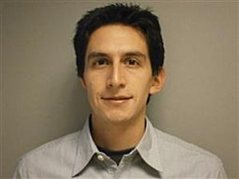
Dr. Victor Isaac Herrera Perez
Professor, Faculty of Computer Science & Electronics
ESPOCH, Ecuador
Evaluation of Bacillus Thuringiensis-Induced Calcite Precipitate for Mitigation of Lateritic Soil Erosion
This is a call for MEng students who may be interested in pursuing an international research project. Please review the information below
This MEng Project is equivalent to up to 2 CIV 1000-level courses or an Env. Science equivalent
MEng Project Description:
Wind erosion affects not less than 500 million hectres of land worldwide and result in the release of 500 to 5000 tera-gram of fugitive dust annually. In addition to soil fertility degradation, the disproportionate loss of soil organic carbon and soil fines may affect soil water infiltration and holding capacity, further affecting soil productivity in semi-arid and regions.
There are various methods of controlling wind erosion and its impact on the environment. These treatments are classified into three categories: mechanical, agronomic and Chemical sand-fixing treatments. Recently, a new soil treatment technique to control erosion has been developed and is called Microbial Induced Carbonate Precipitate or Microbial Induced Calcite Precipitate (MICP) which is sustainable, environmentally friendly and biologically natural method.
This study aims evaluate the suitability of several strains of Bacillus (e.g., B. brevis, B. thuringiensis, B. sphaericus) induced MICP for the control of lateritic and aeolian soil erosion. Our objective is to provide a better, environmentally friendly and cost-effective alternative to improving soil properties, especially strength and erodibility resistance of lateritic and aeolina soil.
Soil samples from an erosion prone site in the south-eastern part of Nigeria and from an aeolian erosion prone site from the northwestern part of Nigeria will be used. The B. species will be isolated from the soils and applied at various suspension densities as well as cementation solutions of varying concentrations.
The experiments will include 1. characterization of B. species in the soil, 2. Studying the potential of B. species induced MICP and 3. investigation of the MICP effect on the soil parameters. Particle swarm, bacteria foraging and fuzzy logic optimization using Matlab (AI- optimization) will be carried out to arrive at optimal results.
Eligibility Criteria:
Program: M.Eng, Civil Engineering or Master of Environmental Science
Technical Expertise Required:
- Interest in soil erosion mitigation
- Some interest in MATLAB and lab-scale experimentation
- Some interest in Artificial Intelligence simulations
Availability: September 2021 – April/August 2022
Application Deadline: Open until filled
Interested students are encouraged to apply by sending the documents listed below, as a single PDF with the subject line: “InVEST Program Application – Project Title“ to info.invest@utoronto.ca and CC tobi.edun@mail.utoronto.ca.
- Resume/CV
- Copy of your most recent transcript (does not need to be official transcript, ROSI copy acceptable)
- Statement of Interest demonstrating your motivation for pursuing the project and what you will bring to this collaborative project
Faculty Advisors:
Professor, Environmental Science
University of Toronto, Canada
Professor, Civil Engineering
Ahmadu Bello University, Nigeria
Professor, Civil Engineering
Ahmadu Bello University, Nigeria
Solving Transient Inverse Heat Transfer Problems in Complex Geometries using Physics Guided Neural Networks
Background:
Temporally and spatially unstable thermal conditions lead to transient or inhomogeneous thermo-elastic behavior of workpieces during manufacturing or geometric inspection. Especially in large-scale manufacturing with high unitary costs of components, inevitable temperature inhomogenities of workpieces result in thermal-induced errors, which impact final product quality and incur serious resource and economical loss due to long temperation times. Temperature monitoring by means of sensors consign transient surface temperature fields, but do not yield information about inner workpiece temperatures or heat flows acting as relevant boundary conditions for thermal simulation models.
FEM, as commonly used numerical approach to perform multi-physics simulations, is a suitable tool to predict thermally induced workpiece deformations, offering the opportunity to consider multiple varying temperature loads, such as thermal energy from the manufacturing process, heat conduction between clamping surfaces or variable ambient temperatures. Although it is possible to simulate and numerically solve virtually any process, the efficient application often suffers from defining correct initial (IC) and boundary conditions (BC), since they have to be known and set up in the simulation model in advance. Most commonly information about heat fluxes are heuristically estimated, which represents an uncertainty for common forward simulation methods.
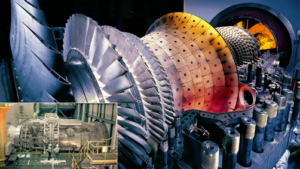
Impact:
Deep learning has achieved remarkable success in diverse applications; however, its use in solving partial differential equations (PDEs) has emerged only recently. To combine the benefits of analytical methods with the advantages of machine learning techniques, Physics-Guided Neural Networks (PGNN) were introduced recently. The basic idea is to apply physical laws into a neural network, whereby the most common approach is to add certain physical laws into the loss function in order to force the neural network to comply with them.

First prototype implementations have indicated that PGNNs are generally capable of solving direct as well as inverse heat transfer problems even for large and complex geometries. Nevertheless, there is still huge potential for improvement related to the efficiency, generalizability and accuracy of the method.
Pushing the research further, the following subtopics were identified and addressed:
- Fine tuning of the prototype related to neural network architectures, loss weights and point sampling schemes
- Application and testing of the method to a real-world demonstrator
- Scientific benchmark between PGNN and FEM for dedicated use-cases
Research Problem Addressed:
At this point, the need for methods to solve inverse heat transfer problems (IHTP) arises. In this context, inverse posed problems address heat fluxes, which are the cause of a temperature distribution and can be quantified by temperature measurements. In fact, inverse calculations belong to optimization problems. Providing additional observation data besides a partial differential equation system (PDE), the aim is to derive the unknown parameter of heat flux.
In order to solve inverse problems, e.g. the Conjugate Gradient Method (CGM) is a commonly used approach to retrieve unknown parameters through minimizing the discrepancy between observations and the solution of PDEs. CGM is a computationally intensive procedure, seeking for an iterative solution for the direct problem using the current assumption of unknown parameters. Additionally, it involves the effort to calculate the gradient in conjugated direction and to formulate and solve the adjoint problem. Therefore, CGM has limited scope to carry out real-time prediction and diagnosis, especially as it comes to complex or even large workpieces.
Eligibility Criteria:
Program: Undergraduate Capstone (4th Year), Mechanical and Industrial Engineering
Technical Expertise Required:
- Interest in Artificial Intelligence and Simulations
Availability: September 2021 – April 2022
Application Deadline: Open until filled
Interested students are encouraged to apply by sending the documents listed below, as a single PDF with the subject line: “InVEST Program Application – Project Title“ to info.invest@utoronto.ca and CC tobi.edun@mail.utoronto.ca.
- Resume/CV
- Copy of your most recent transcript (does not need to be official transcript, ROSI copy acceptable)
- Statement of Interest demonstrating your motivation for pursuing the project and what you will bring to this collaborative project
Faculty Advisors:
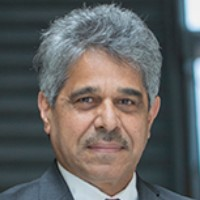
Professor, Mechanical and Industrial Engineering
University of Toronto, Canada
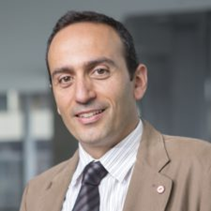
Professor, Mechanical Engineering
University of Toronto, Canada
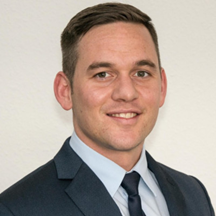
Researcher, Production Metrology and Quality Management
RWTH Aachen, Germany
Sustainable Production of Chemical Products through Enzyme Cascades
Background:
Valorizing all components of renewable and underused biomass (e.g., forest and agricultural residues) is central to meeting national and international commitments to reduce carbon emissions, and assuming a prominent role in international markets moving towards greener economies. Genomics initiatives over the past decade have uncovered the critical importance of microbial enzymes to expanding the range of products that can be made from renewable biomass. So far, most applications of such enzymes focus on the deconstruction of biomass to sugars for fermentation to low-cost fuels and chemicals. An emerging area of research aims to create biocatalytic cascades that tailor the native structure of the biomass polymeric constituents or introduce new functionality into intact biomass structures (e.g., cellulose, hemicelluloses), permitting their broader use in high-value applications (e.g., textiles, hydrogels). In particular, cascades that combine carbohydrate hydrolases, esterases, oxidoreductases and w-transaminases present a significant opportunity expand the range of products created from renewable biomass.
Research Problem Addressed:
Carbohydrate oxidoreductases and w-transaminases have not evolved to work together; moreover, plant polysaccharides are not the natural substrate of w-transaminases. Accordingly, effective biocatalytic cascades that combine carbohydrate oxidoreductases and w-transaminases for plant biomass upgrading must be engineered, characterized and then validated through bioproduct fabrication. A challenge for the use of such biocatalytic cascades is the complex molecular heterogeneity and supramolecular assembly of the biomass components, resulting in usually insoluble substrates, which may hinder the accessibility of the enzymes and the study of their biocatalytic activities. This requires the development of analytical approaches to characterize such complex and heterogeneous substrates.
Proposed Solutions
Candidates will be offered one of the following three research topics:
- Protein Engineering: Perform structure-guided design and testing of w-transaminases with enhanced activity on oxidized forms of plant-derived polysaccharides (i.e., cellulose, hemicelluloses).
- Analytical Chemistry: Develop liquid chromatography and mass spectrometry methods to quantify the degree of oxidation and amination of enzymatically treated carbohydrates. Develop solid state techniques to characterize the activity and effect of enzymatic modifications on complex biomass substrates.
- Bio-based material fabrication: Apply biocatalytic cascades to fabricate stable hemicellulose-derived hydrogels relevant to applications in food and health
InVEST Program Participation
Master’s thesis students joining this project will be part of an international collaboration between KTH Royal Institute of Technology (KTH) and the University of Toronto (UofT) supported by UofT’s InVEST (International Virtual Engineering Student Teams) initiative.
The key aim of the InVEST initiative is: 1) to enhance international knowledge and experience for students, 2) to prepare them for working in a globalized context, and 3) to share knowledge and expertise and mutual learning’ to help solve pressing challenges facing our global society.
In addition to pursing a research project that is part of an international collaboration, InVEST provides opportunities for enhanced international knowledge and experience for engineering students by delivering five workshops on the following topics:
- Technology training
- Virtual team working and collaboration
- Intercultural communication
- Engineering intercultural scenario
- Engineering project application
Students participating in this collaborative initiative are required to participate at each InVEST workshop. Each workshop will be ~ 1.5 h and scheduled to align with student availabilities. At the end of their research project, each student will receive an InVEST certificate of participation, which will provide evidence of knowledge and experience in working in international and collaborative teams.
Eligibility Criteria:
Program: M.Eng, Chemical Engineering
Technical Expertise Required:
Eligible candidates will be at the Master’s level of education and should have completed a degree in chemical engineering, biochemistry, biotechnology, or material science. Candidates need to fulfill the eligibility criteria to a Master thesis course at their respective institution (i.e., KTH or University of Toronto). Candidates should have excellent communication skills in scientific English, both orally and in writing, and must be willing to participate at the five workshops delivered by InVEST (see above) to receive an InVEST certificate of completion.
Availability: January 2022 – May 30, 2022
Application Deadline: Open until filled
Interested students are encouraged to apply by sending the documents listed below, as a single PDF with the subject line: “InVEST Project Application – Project Title” to info.invest@utoronto.ca and CC tobi.edun@mail.utoronto.ca.
- Resume/CV
- Copy of your most recent transcript (does not need to be official transcript, ROSI copy acceptable)
- Statement of Interest demonstrating your motivation for pursuing the project and what you will bring to this collaborative project
Faculty Advisors:
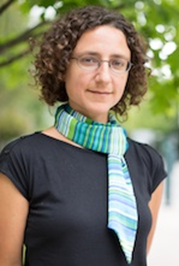
Professor, Chemical Engineering
University of Toronto, Canada

Professor, Industrial Biotechnology
KTH Royal Institute of Technology, Sweden

Dr. Francisco Javier Vilaplana
Associate Professor, Glycoscience
KTH Royal Institute of Technology, Sweden
Undergraduate Capstone Projects
Check back regularly for updates…




